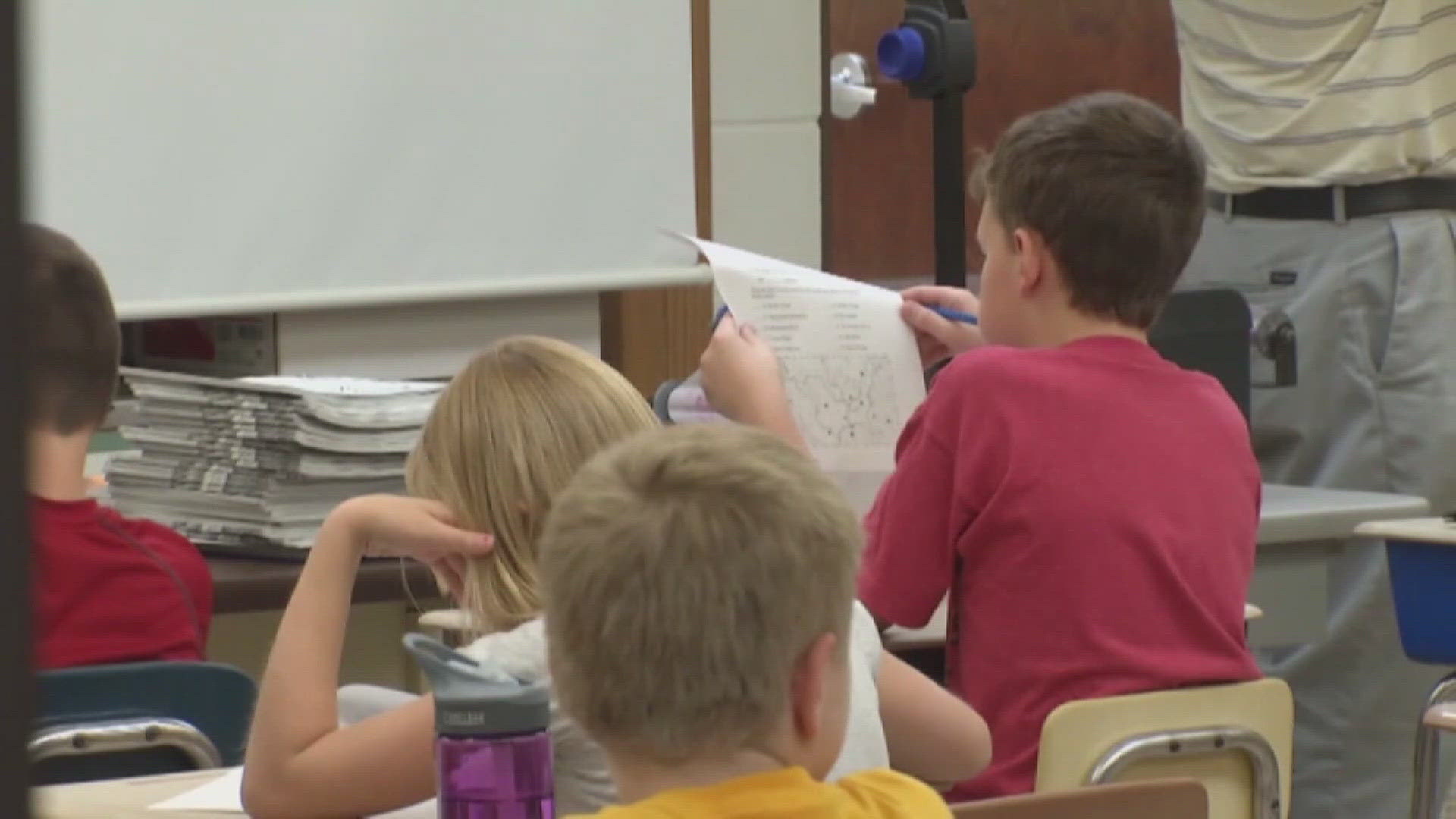IOWA, USA — Gov. Kim Reynolds signed more than 180 bills into law in 2024, and many are set to take effect July 1.
From putting new regulations on consumable hemp products and meat alternatives, to enforcing new penalties for making swatting calls, Local 5 rounded up some of the most notable laws going into effect July 1.
For a full list of all the laws taking effect, click here.
Hemp products
Businesses that sell consumable hemp products will face new restrictions beginning July 1. HF 2605 caps THC serving limits at 4 mg per serving and 10 mg per container.
The law also stipulates that people who buy consumable hemp products containing THC must be 21 years old.
Businesses are already feeling the pressure to comply with the impending regulations. Ashley Powell, the owner of CBD American Shaman in Indianola, plans to close the store on June 22. Powell estimates about 80% of the store's products will become illegal when the new law takes effect.
"Customers are very upset, and some of them are just in disbelief," Powell told Local 5 in May.
Meat and egg alternatives
Popular vegan and vegetarian products like the "Impossible Burger" and "Beyond Burger" may sport different labels in the near future.
Reynolds signed SF 2391 into law in May, requiring companies who create meat alternatives or egg alternatives to use specific language to avoid confusing consumers.
If a product is misbranded, the Department of Inspections will fine the processing plant and bar its products from being sold to Iowa school districts and community colleges.
Teen driving
Beginning July 1, teenagers as young as 14.5 years old will be allowed to drive up to 25 miles away to work or school.
In order to qualify for a "special minor's restricted license" under the new law, teens must hold an instruction permit for at least six months and, in most cases, complete an approved driver's education course.
The drivers must also provide proof of educational enrollment and have a parent or guardian complete a written consent form.
Swatting penalties
Senate File 2161 increase penalties for people who make false reports regarding an impending threat to public safety officials, also known as swatting.
Anyone suspect of the crime would be charged with a Class D felony. If the false report results in serious injury or death of another person, that charge is upgraded to a Class C felony.
The law comes as the Iowa Department of Public Safety says the state has seen a "significant uptick" in the number of swatting calls in recent years.
Traffic cameras
Traffic cameras will be back up and running if the local government has applied for a permit with the Iowa Department of Transportation.
Cities must have proper signage, signaling that the cameras are there. Cities of 20,000 people or less are not allowed to have automated traffic enforcement, unless it is in neighborhoods, construction zones, school zones or places where it’s dangerous to enforce traffic violation via other methods.
Drivers will only be cited if exceeding the speed limit by more than 10 miles per hour.
Reforms to Area Education Agencies
Oversight of Area Education Agencies (AEA) will shift to the Department of Education and certain funds for media and education services will be adjusted. Special education service funds will not be shifted until 2025.
Along with this law, the statutory minimum salary for teachers in Iowa will increase to $47,500.
Illegal reentry
A controversial immigration law was set to take effect in July, until it was temporarily blocked by a judge in mid-June.
The law would make it a state crime for a person who has previously been denied entry to or removed from the United States to be in Iowa.
The U.S. Department of Justice and the Iowa Migrant Movement for Justice are suing the state of Iowa over the law, and asked a federal judge to block its enforcement.
In response, U.S. District Court Judge Stephen Locher issued a preliminary injunction on the law.
Locher said the DOJ and civil rights groups who filed the lawsuits would likely succeed in their argument that federal immigration law preempted the law approved this spring by Iowa lawmakers.

